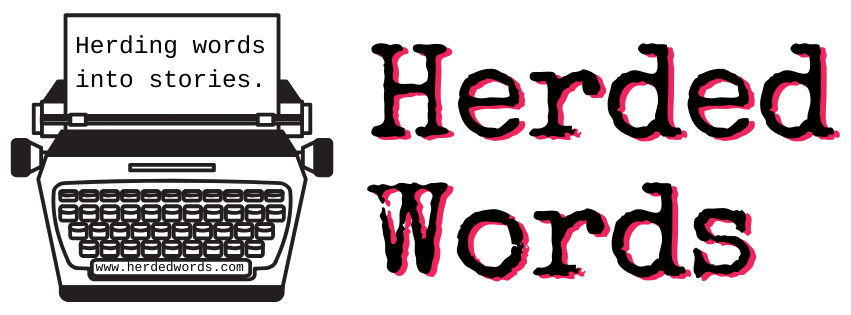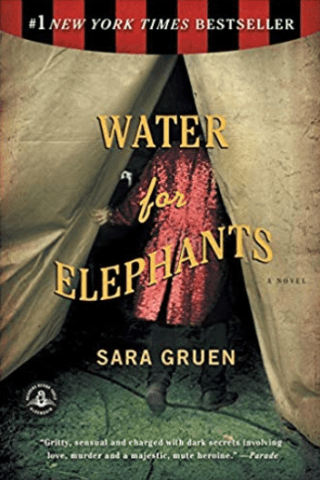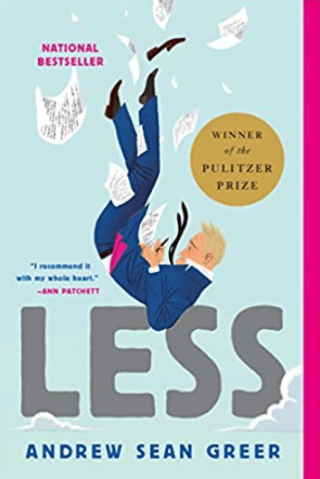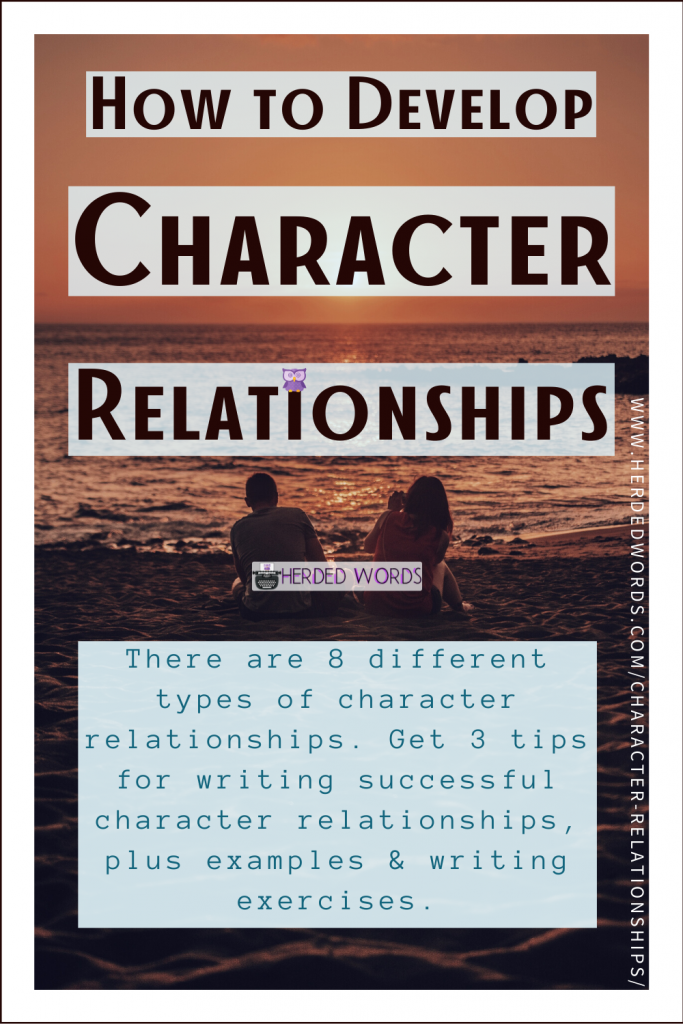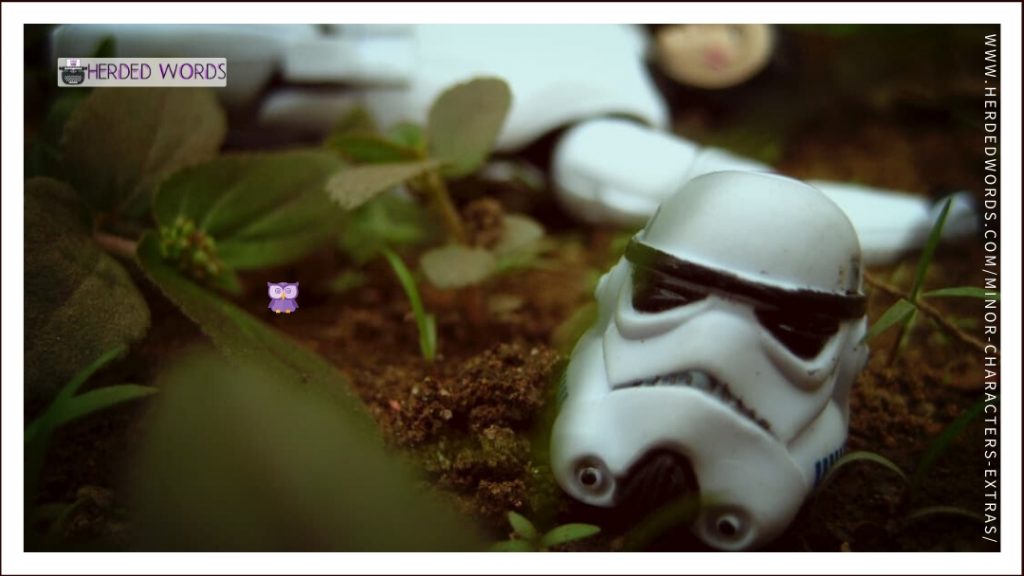
Listen to this post
Herdedwords.com uses affiliate links. This means we receive a commission on the sale of certain items. This is at NO additional cost to you. Visit the policies page to learn more.
Novels are full of characters. The majority of characters in a story are minor characters or extras.
There’s a lot of focus on the essential 6 types of characters (for example the protagonist and antagonist), but those aren’t going to make up a complete cast of characters. You’re also going to have secondary characters, minor characters, and extras.
Table of Contents
Minor Characters
Minor characters have all the bit character parts of your novel. They’re just one little step up from extras. What to do with these characters? How to write them?
Minor characters are the ones that are there solely to serve your plot. They aren’t developed in any way. Your reader should never care about them or wonder what happened (or will happen) to them. They’re there for a short and specific reason.
Remember though, minor characters still need a purpose, don’t write them just because you can.
Extras
Extras are even less visible than minor characters. Most of the extras in your novel will never be mentioned and they certainly won’t be named. They exist to fill up the world and rarely need to be mentioned.
For example, if your main character stops off in a cafe.
The cafe was crowded when I arrived. I scanned the room looking for a free table and noticed a woman in the back who looked about ready to leave.
In a novel, you don’t need to individualize the characters who are crowding the cafe. But, each of the people in the crowd would be an extra. The woman leaving? Also an extra. She’ll probably never appear again, she doesn’t need a backstory, description or even a name.
I opened the door and nearly walked out again. Is this place even open, I wondered. I glanced around and spotted a single patron at the back.
Again, we have a single extra. There’s another person in this cafe. We don’t talk to them, we don’t know their name, they exist to serve the role of being there. That’s it.
What’s the Difference between Minor Characters and Extras?
There’s almost no difference. It’s not really something you need to worry about. The simplest way to explain the difference is interaction.
If there’s interaction – they’re a minor character. If they’re used as more of a prop – they’re an extra.
Does this ultimately matter? No. You can use whichever term you prefer for either. Don’t sweat this kind of minuscule thing.
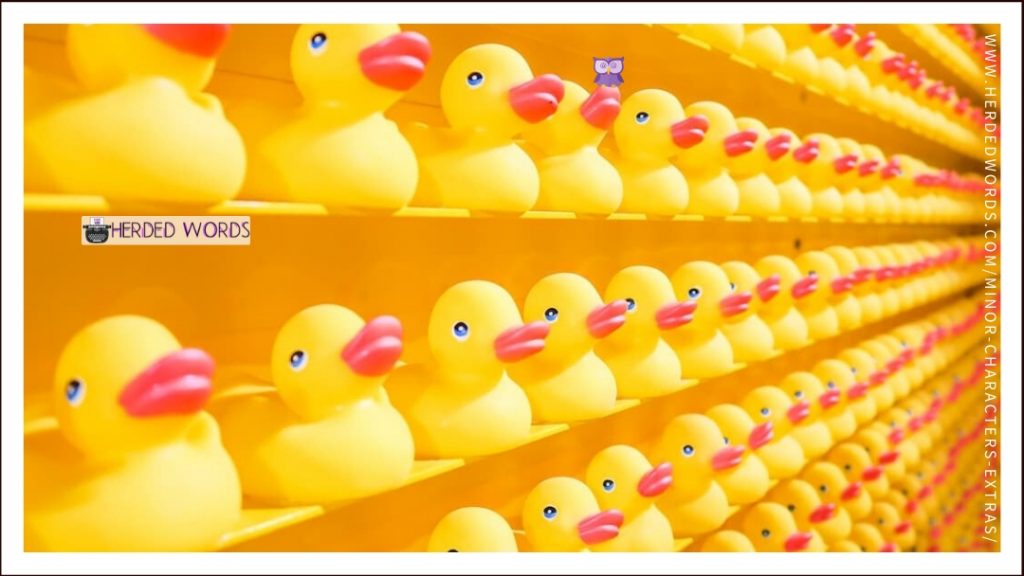
Minor Character & Extras Jobs
If any of the jobs below can be done by a secondary character, they should be. You don’t want to clutter your novel up with a million minor characters.
This does not mean that your minor characters and extras are not real characters. They are, and they should act like it. But they’re not important characters. If you have to kill them, your reader isn’t going to miss them.
#1 – Fill Out a Scene / World
Your major characters probably aren’t alone in their world (and scenes). Minor characters and extras can be used to fill out the population of your world.
The elevator opened and a stream of people emerged.
#2 – Provide Information
Minor characters are great for providing information. It’s a common way for characters to learn things by overhearing or seeing it happen. It’s also a great way to introduce the reader to the story world.
I walked to the front of the line, ignoring the shouts of the people watching.
#3 – Set the Tone / Mood
Minor characters and extra can be used to set the tone of a scene.
I opened the door and everyone stopped talking. I glanced around but nobody would make eye contact.
What tone/mood will you be expecting in this scene? Feels like tension and discomfort to me.
Most (or all) of the people who went silent and won’t make eye contact won’t be important characters. They’ll be minors or extras. However, they’ve effectively been used to set the tone of the upcoming scene.
#4 – Move the Plot
Not all plot events need to start in a big way. Minor characters and extras can be useful for smaller plot movements.
Simple things can have consequences that play out in your story. The character who caused the problem may never be seen again (or they might become a more important character later).
“This meeting could determine my future – I can’t afford to be late,” she thought to herself. Of course, that would be the moment a stranger would smash into her, tearing her skirt and splashing his coffee all over.
When Minor Characters/Extras become Important
Sometimes authors will play a little trick on their readers. They’ll introduce an important character as an extra or minor character. Later on, that character becomes someone important.
There’s nothing wrong with doing this. Although I’d caution you not to overdo it – once a novel, at the most.
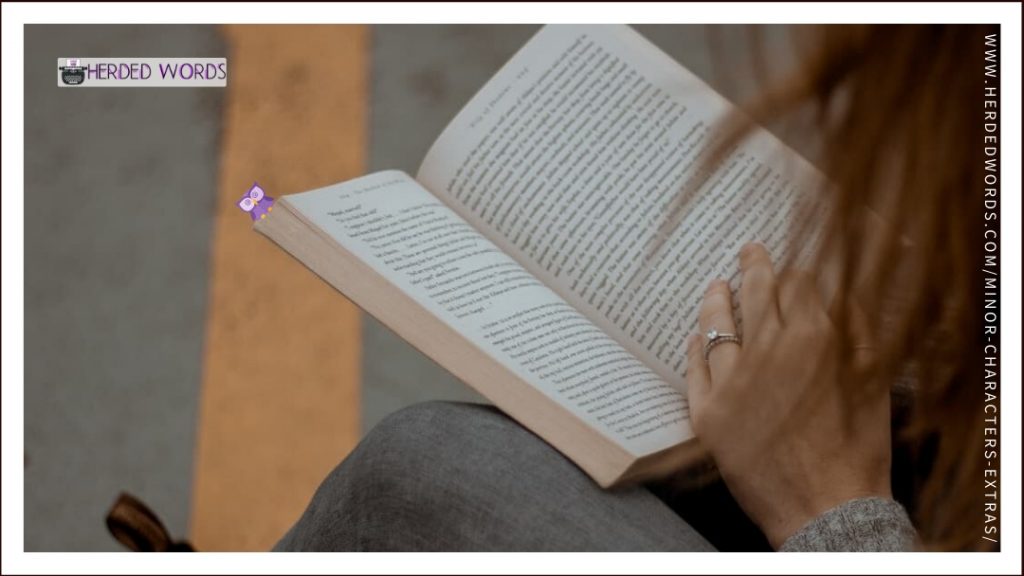
Examples of Minor Characters & Extras
Let’check out the appearances of some minor characters and extras in bestselling and award-winning novels.
WATER FOR ELEPHANTS
WATER FOR ELEPHANTS, published in 2010, is a contemporary novel by Sara Gruen. The movie was released in 2011.
WATER FOR ELEPHANTS spent 8 weeks at #1 on the NYT Bestseller List. It has sold over 10 million copies worldwide.
#1 – Fill Out a Scene / World
Nameless crowds are used to fill out the circus world & provide information.
The other townsfolk—rubes, as Uncle Al called them—had already made their way through the menagerie tent and into the big top, which pulsed with frenetic music.
#2 – Provide Information
Joseph McGuinty is a minor character at the start of the novel. He’s used as our first introduction to the idea of the circus.
“I used to carry water for the elephants,” says McGuinty.
I drop my fork and look up. He is positively dripping with self-satisfaction, just waiting for the girls to fawn over him.
“You did not,” I say.
#3 – Set the Tone / Mood
Using groups of nameless people can set the tone better than specific details sometimes. WATER FOR ELEPHANTS uses them often to set the mood of the circus.
Teams of men are also raising enormous poles. Charlie and I pass a group of ten throwing their combined weight against a single rope as a man off to the side chants, “Pull it, shake it, break it! Again—pull it, shake it, break it! Now downstake it!”
#4 – Move the Plot
Charlie is a minor character at the end of the novel. He moves the plot into the resolution
Charlie shoots me a look. “Dad can’t talk. He had a major stroke a few years ago.”
LESS
LESS, published in 2017, is a satirical comedy novel by Andrew Sean Greer.
LESS won the 2018 Pulitzer Prize for Fiction.
#1 – Fill Out a Scene / World
Less spends a lot of time alone in this novel, but there’s a whole world of people around him
More thunder unsettles Less from his thoughts. But it isn’t thunder; it is applause, and the young writer is pulling at Less’s coat sleeve. For Arthur Less has won.
#2 – Provide Information
Mariam is a great example of a minor character that is used to provide information. The first mention of her tells us a lot about Less (and Robert).
The last words she ever said to him were Take care of my Robert. But she had not known then that he would take him from her.
#3 – Set the Tone / Mood
Extras are commonly used in Less to set the mood and tone of scenes (and the overall novel).
Just a new mother, walking her baby around her apartment in the early morning. Seeing a scene perhaps out of a foreign comedy. She knows he is not a thief; he is clearly just an American.
#4 – Move the Plot
Finley is a minor character in the France chapter. He’s used to move the plot forward by telling Less that he’s not a bad writer, he’s a bad gay. This is a big revelation for Less (although one it takes him some time process).
“We’re all over fifty, Arthur. It’s not that you’re -“
“Wait, I’m still -“
“-a bad writer.” Finley pauses for effect. “It’s that you’re a bad gay.”
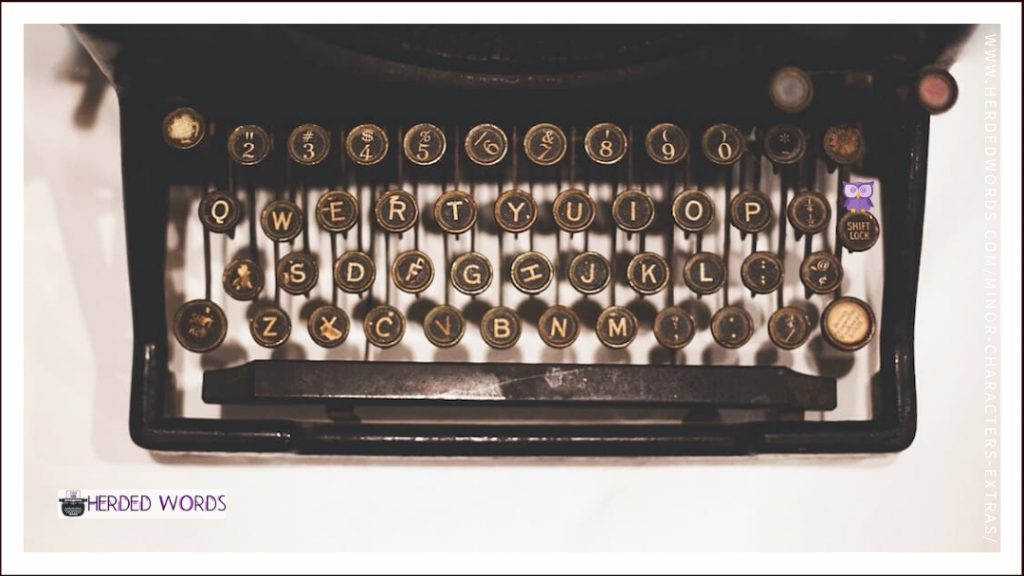
Writing Practice
What’s the best way to improve your writing? Practice! It’s time for you to take what you learned above and do it yourself.
Check out the following writing exercises and prompts that will help you master minor characters and extras.
Exercise: Analyze More Novels
Every genre will be a little different. Choose some of your favorite novels and some novels in the genre you want to write in (if they’re different). Analyze how minor characters and extras are used in a variety of scenes for each novel.
- How do they fill out the world or a scene?
- How do they provide information?
- How do they set the tone/mood?
- How do they move the plot forward?
Exercise: Adapt LITTLE RED
LITTLE RED-CAP has a really lean cast of characters. It’s time to add some more.
Your task: Write a new scene of at least 400 words. Make sure it includes minor characters and extras!
Need an Idea?
- Red & the Wolf aren’t alone in the forest (or they’re in a different place that’s full of people).
- Red passes a group of people on her way and wishes she was part of that group.
- Write from the Wolf’s point of view: he sees other people but rejects them as his dinner for various reasons.
Prompt:
Your best friend is on trial for a series of brutal murders but you’re the serial killer.
Your task: Write at least 3 scenes of 100+ words that require the mention of minor characters and extras.
Practice Notebooks
My favorite way to do short writing exercises is by hand. I keep notebooks everywhere! Check out these unique notebooks.
Minor Characters are Real
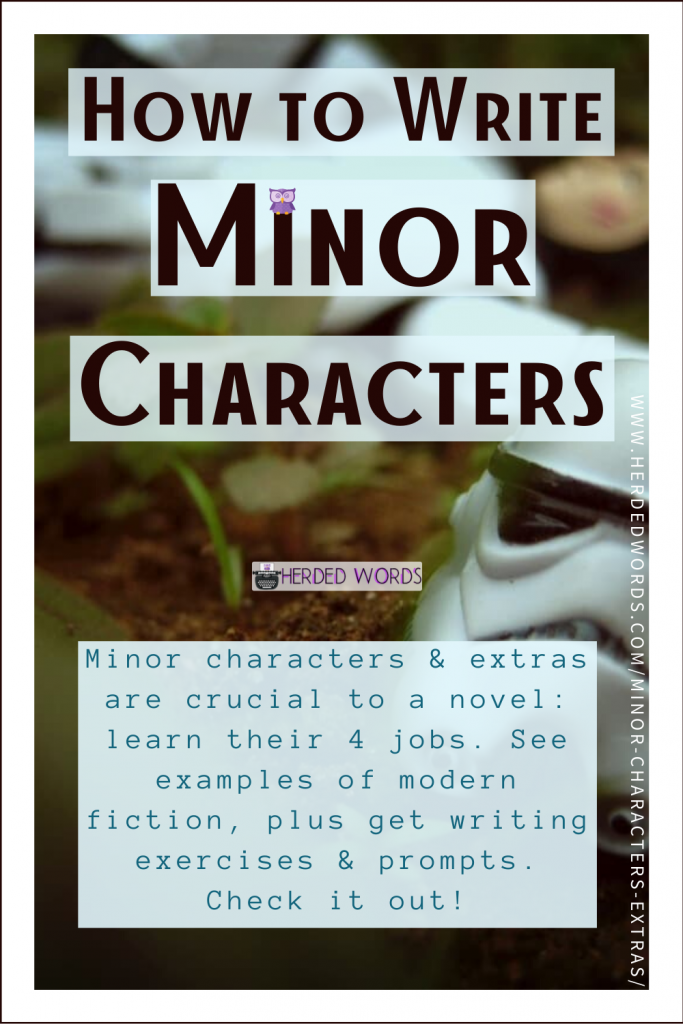
Just because you’re only using minor characters and extras to fill out and further your story, doesn’t make them any less real.
They’re not fake, or stereotypes so don’t treat them as such!
Now that you’ve got all your characters (major, minor, and extra), it’s time to focus on their relationships. Check out How to Develop Character Relationships next.
Like this post? Please PIN IT and follow me on social media. Thanks!
